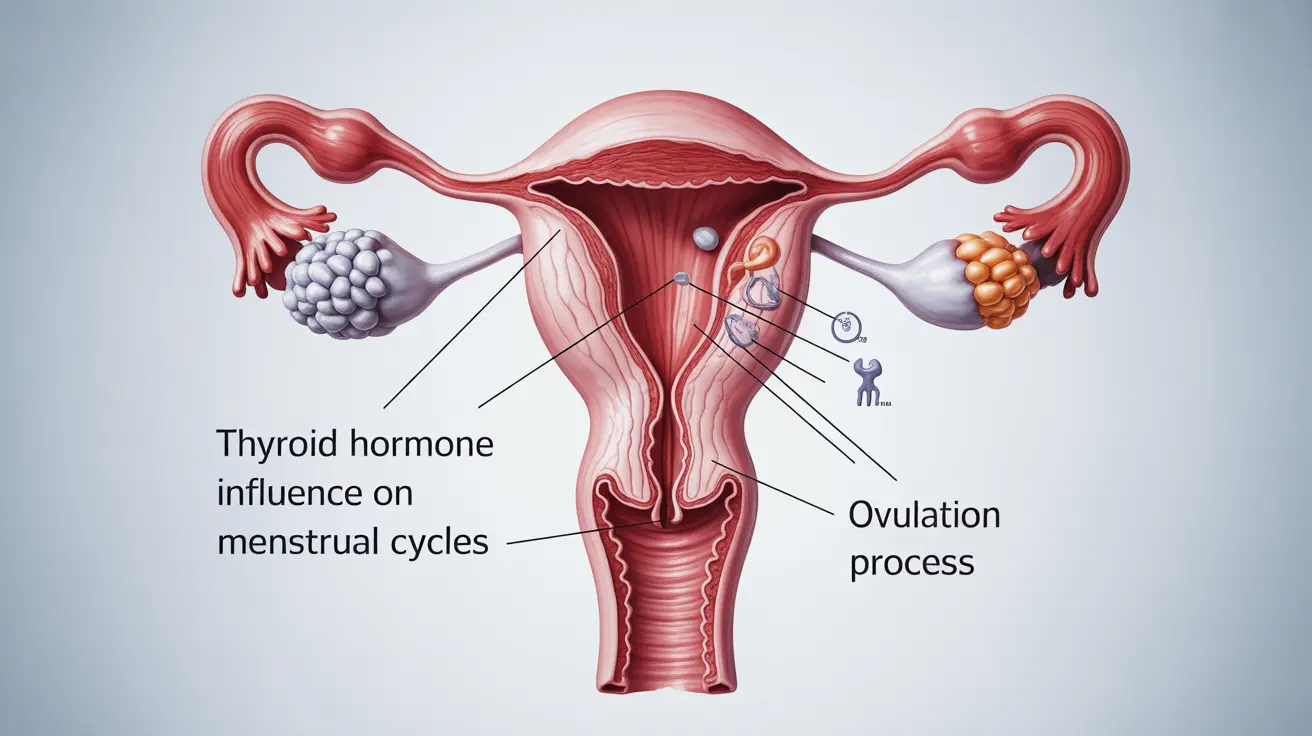Hypothyroidism and infertility are closely interconnected health concerns that affect many women of reproductive age. When the thyroid gland doesn't produce enough hormones, it can significantly impact a woman's fertility and her ability to conceive. Understanding this relationship is crucial for women who are trying to get pregnant or experiencing fertility challenges.
This comprehensive guide explores how thyroid function affects fertility, what testing and treatment options are available, and when to seek specialized care. Whether you're actively trying to conceive or planning for future pregnancy, knowing how hypothyroidism influences reproductive health is essential for making informed decisions about your care.
The Connection Between Thyroid Function and Fertility
Thyroid hormones play a vital role in reproductive health by regulating menstrual cycles, ovulation, and the production of key reproductive hormones. When thyroid function is impaired, it can disrupt these delicate processes in several ways:
- Irregular menstrual cycles
- Disrupted ovulation
- Luteal phase defects
- Hormonal imbalances affecting egg quality
- Reduced fertility rates
These disruptions can make it more challenging to conceive naturally and may require medical intervention to address both the thyroid condition and fertility concerns.
Optimal Thyroid Levels for Conception
For women trying to conceive, maintaining proper thyroid hormone levels is crucial. The recommended thyroid-stimulating hormone (TSH) levels for women planning pregnancy are typically lower than the general population's reference range:
- TSH level below 2.5 mIU/L for women trying to conceive
- Free T4 within the normal reference range
- Regular monitoring throughout pregnancy planning
Diagnosis and Treatment Approaches
Testing Protocol
Comprehensive thyroid testing typically includes:
- TSH (thyroid-stimulating hormone)
- Free T4 (thyroxine)
- Thyroid antibodies
- Additional fertility hormone panels as needed
Treatment Strategies
Treatment for hypothyroidism in women with fertility concerns typically involves:
- Levothyroxine medication to normalize thyroid levels
- Regular blood tests to monitor hormone levels
- Dose adjustments as needed
- Integration with fertility treatments when appropriate
Pregnancy Risks and Monitoring
Untreated hypothyroidism can increase various pregnancy-related risks, making proper management essential:
- Higher risk of miscarriage
- Increased chance of preterm birth
- Potential developmental issues
- Pregnancy complications
Regular monitoring and medication adjustments throughout pregnancy help minimize these risks and promote better outcomes for both mother and baby.
When to Consult a Fertility Specialist
Women with hypothyroidism should consider consulting a fertility specialist if:
- Unable to conceive after 6-12 months of trying
- Experiencing irregular menstrual cycles
- History of miscarriage
- Age 35 or older with fertility concerns
- Thyroid levels remain unstable despite treatment
Frequently Asked Questions
How does hypothyroidism affect a woman's ability to conceive and what are the common fertility problems caused by it? Hypothyroidism can interfere with ovulation, menstrual regularity, and hormone balance, making it harder to conceive. Common fertility problems include irregular periods, anovulation (lack of ovulation), and luteal phase defects that can affect implantation.
What are the recommended thyroid hormone levels for women trying to get pregnant or who are pregnant with hypothyroidism? Women trying to conceive should maintain TSH levels below 2.5 mIU/L, with normal free T4 levels. During pregnancy, even stricter monitoring is required, with TSH typically kept below 2.5 mIU/L in the first trimester and below 3.0 mIU/L in later trimesters.
How is hypothyroidism diagnosed and treated in women experiencing infertility? Diagnosis involves comprehensive blood tests measuring TSH, free T4, and thyroid antibodies. Treatment typically includes levothyroxine medication, with doses adjusted based on regular monitoring and fertility treatment needs.
Can untreated hypothyroidism increase the risk of miscarriage or pregnancy complications? Yes, untreated hypothyroidism significantly increases the risk of miscarriage, preterm birth, and other pregnancy complications. Proper treatment and monitoring are essential for reducing these risks.
When should a woman with hypothyroidism see a fertility specialist for infertility concerns? Women should consult a fertility specialist if they haven't conceived after 6-12 months of trying, have irregular cycles, experience recurrent miscarriage, or are 35 or older with fertility concerns, especially if thyroid levels are difficult to stabilize.




